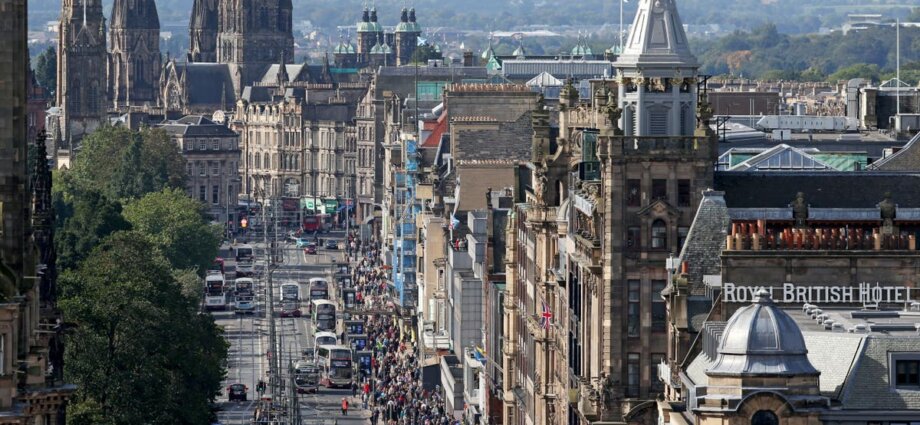Business leaders in Scotland’s capital have warned there “simply isn’t enough time” to introduce a new charge on visitors to Edinburgh from May without causing “significant disruption” to accommodation providers.
The Federation of Small Businesses (FSB) said an online platform being brought in as part of Edinburgh City Council’s plans to introduce a new visitor levy was “still in development”.
The council – which is likely to be the first in Scotland to bring in such a scheme – has highlighted the importance of the £50 million the charge could raise.
However, FSB officials insisted the focus should be on “ensuring as far as possible that the launch goes without a hitch”.
Garry Clark, FSB development manager for Edinburgh and the east of Scotland, spoke ahead of a meeting of the council’s policy and sustainability committee on Friday January 17 when the new levy will be discussed.
The charge, which is expected to be set at 5% of the accommodation cost, will then go before the full council for approval the following week on January 24.
Under the council’s plans, the levy is to be applied on bookings made after May 1 this year, for accommodation stays from July 24, 2026 onwards, adding to the costs for those staying in hotels, B&Bs and self-catering accommodation, as well as campsites and caravan parks.
Mr Clark said: “There is an expectation that B&Bs and other small operators will start applying the levy to advance bookings in 15 weeks’ time, but the booking platform which is being introduced for the purpose is still in development.
“There simply isn’t enough time to meet the deadlines laid out by the city council without risking significant disruption to the businesses who will have to apply the charge and their customers.
“We know from experience that delivering new IT systems can be fraught with difficulties. It is vital the new platform which is intended to be used in other local authority areas who adopt a visitor levy is thoroughly tested before bookings go live.”
Mr Clark said the council had “declared its aim is to introduce the visitor levy as quickly as the enabling legislation will allow”, adding: “We understand the financial pressures local authorities are under and the importance of the new revenue stream to the council.
“But that shouldn’t be its priority, it should be ensuring as far as possible that the launch goes without a hitch.”
He added that “many small businesses” had “warmed ” to the levy, which will raise much-needed additional cash for the city, but said there were “still unanswered questions” about its introduction.
City of Edinburgh council leader Jane Meagher said last week the proposed levy is a “once-in-a-lifetime opportunity to sustain and enhance Edinburgh’s position as one of the most beautiful, enjoyable destinations in the world”.
Ms Meagher stated: “With income of up to £50 million expected once it is established, the funding could provide Edinburgh with the single biggest injection of new funding this side of the millennium, providing a unique opportunity to further improve and protect all that makes Edinburgh the incredible destination it is today.
“We’ll be able to use funds to help us manage tourism sustainably and boost projects which benefit the experience of visitors and residents.”
A spokesperson for the City of Edinburgh Council said it was developing not a booking platform, but a levy collection platform – which is said would be piloted next winter “in plenty of time for the levy to come into force”.
The spokesperson said: “As agreed by councillors next Friday, the visitor levy will apply to bookings made on or after May 1 2025 for overnight stays in Edinburgh on or after July 24 2026.
“While there is no requirement for businesses to collect the levy at the point of booking, with accommodation providers able to choose how best to implement it according to their own business practices, visitors must be made aware of the final price of their accommodation in order to comply with UK consumer laws.
“Accommodation providers will only need to submit a return and pay the council the required levy amount from the end of September 2026 and businesses will be given reasonable time to complete this return.
The spokesperson continued: “We’ve been working with partners to develop the levy collection platform, and we expect to run testing and pilot activity next winter, in plenty of time for the levy to come into force.”











